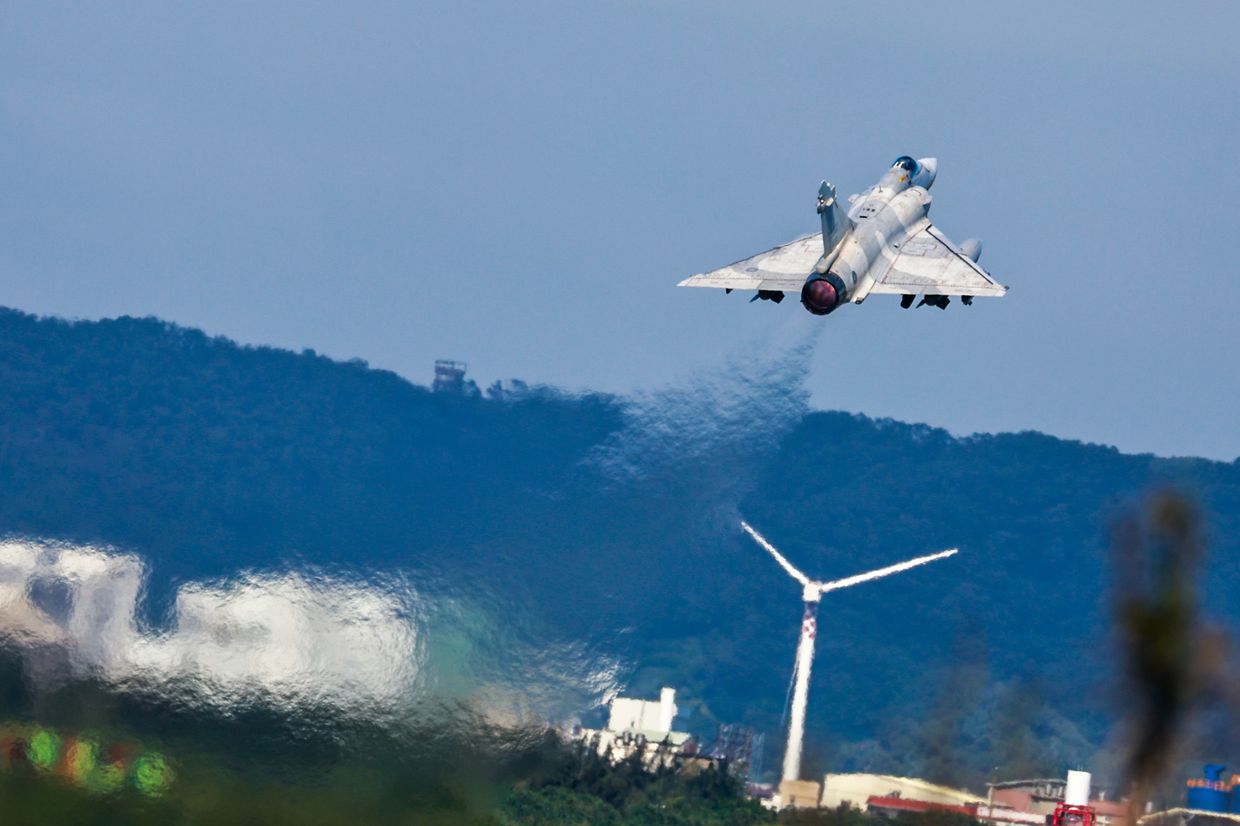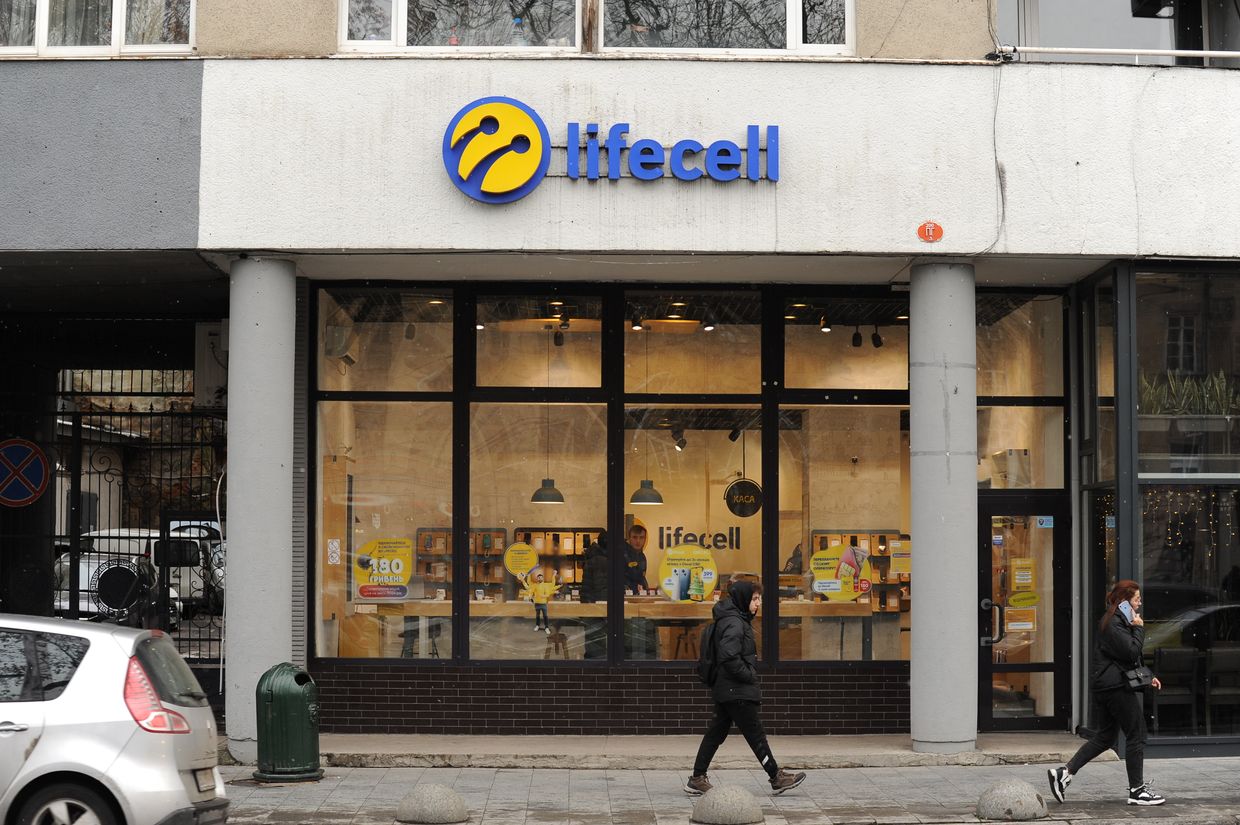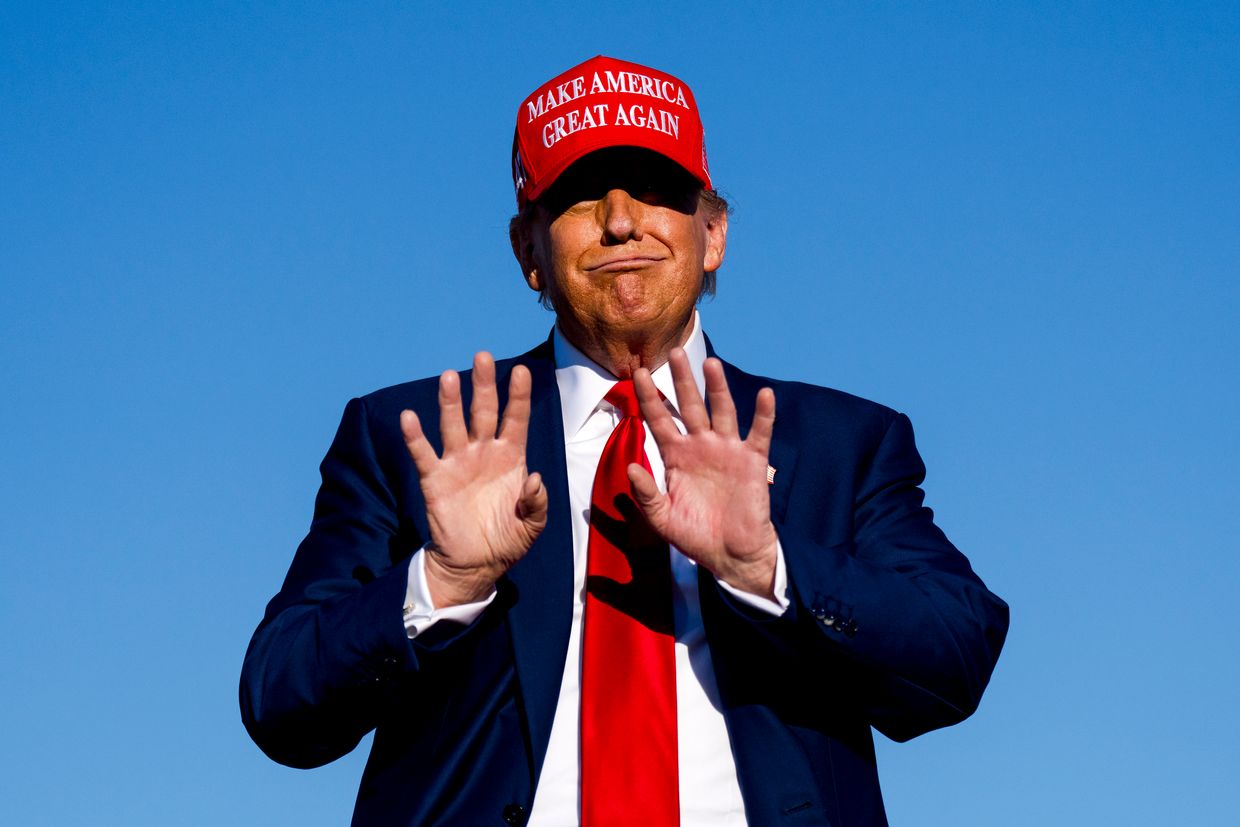French trade chief says Paris involved in rare earths research in Ukraine, adds US not a competitor

Minister delegate for Foreign Trade Laurent Saint-Martin is listening during a new year wish on Jan. 9, 2025 in Brussels, Belgium. (Thierry Monasse/Getty Images)
French point man for foreign trade, Laurent Saint-Martin, came to Kyiv during a turbulent time.
As U.S. aid to Ukraine was drying up, President Donald Trump had made public his desire to get a hold of Ukraine’s rare earth minerals in return for a new influx of American support. The idea of trading Ukrainian raw resources in exchange for aid was seen as a favorable scenario by Kyiv, desperate to keep the flow of military hardware into the country.
Yet, the unilateral claim by Trump didn’t sit well with European counterparts, with German Chancellor Olaf Scholz calling Trump’s statement "very egoistic, very self-centered."
While in Kyiv on Feb. 5, Saint-Martin selected grants for reconstruction projects in the fields of health, infrastructure, energy, demining and agriculture that would benefit from the €200 million grant fund and spoke with the Kyiv Independent about rebuilding Ukraine, extraction of rare earth minerals in the country, and a potential trade war between Kyiv’s closest allies.
Kyiv Independent: Mr. Saint-Martin, can you please summarize your visit?
Laurent Saint-Martin: My role as foreign trade minister has a dual purpose. The first is to reaffirm France’s support for Ukraine in a complex global context — military, diplomatic, but also economic and commercial support. The second goal is to show that France and Europe continue to support Ukraine in mutual economic projects, benefiting both France and the European Union, and Ukraine by developing joint investment projects.
Kyiv Independent: You mention a dual interest, particularly in a context where Donald Trump conditions American aid on commercial profits he could benefit from here, in Ukraine. How can we ensure Ukraine benefits from this as well?
Laurent Saint-Martin: Ukraine is in a process of accession to the European Union. This process echoes the discussions we had at the Warsaw industry and trade meeting on Feb. 4, regarding the integration of Ukrainian companies in Europe and investments in Ukraine, whether foreign or Ukrainian.
The aim is to integrate these investments into European value chains, offering competitive advantages. This requires investments in sectors like infrastructure, digital technology, and energy decarbonization. France has the expertise and solutions to address these needs.
Kyiv Independent: In which areas can France offer something more than other Ukraine allies, including the United States?
Laurent Saint-Martin: In areas like low-carbon energy production, France and Europe have a considerable advantage over other countries. The question is whether our companies, both large and small, have the capacity to provide solutions suited to Ukraine’s specific challenges and to integrate these solutions into European chains. This requires appropriate financial instruments to enable these investments.

We've mentioned the 200 million euro aid fund and concessional loans in the infrastructure sector. These are tools that will help support the implementation of these projects.
Kyiv Independent: Regarding French companies, can you provide specific examples of those that have established themselves in Ukraine?
Laurent Saint-Martin: We have a network of French companies that have been present in Ukraine for a long time, many of which have remained active. France is the largest foreign employer in Ukraine, with around 25,000 employees. This is a significant asset, particularly in sectors like financial services, which are very important for local employment.
There are also projects like the one by Xavier Niel, with a €1 billion investment in the telecommunications sector. We also support companies in the energy, water, and infrastructure sectors.
Kyiv Independent: The issue of exploiting rare materials in Ukraine is currently being discussed, following Donald Trump’s statements. What is France’s position on this?
Laurent Saint-Martin: France has been working with Ukraine on rare mineral exploitation for a long time, with French experts from organizations like BRGM and the inter-ministerial Direction for Rare Mineral Supply. These actors are already involved in projects.
Of course, many of these resources are in occupied areas, but there are also many resources in the territories controlled by Ukraine. France remains fully involved in this sector, and we continue discussions with Ukrainian authorities.
Kyiv Independent: And in that particular field, what is the added value of France?
Laurent Saint-Martin: I believe that from technical expertise to exploitation, France has a complete supply chain when it comes to critical minerals. I was recently in Ulaanbaatar, Mongolia, with Orano nuclear company, for example, for a record investment in uranium that we made with the Mongolian authorities.
The France brand in the critical minerals supply chain is now well-established and internationally recognized. Between Orano, Eramet mining company, and other smaller players, we possess solid know-how, strengthened by the expertise we provide, particularly in situations like the one we are discussing.
Kyiv Independent: Regarding cooperation with the United States, how does France plan to approach these issues in Ukraine, particularly in the face of potential market competition?
Laurent Saint-Martin: France's position is to prioritize complementarity over competition. We must work together — first on military aspects, then on reconstruction and major economic issues like decarbonization and rare mineral exploitation. France, with its companies and expertise, undeniably adds value in these sectors. This is not about competition, but collaboration for the future of Ukraine and Europe.
Kyiv Independent: France is also involved in Ukraine’s reconstruction, have you observed any progress in Ukraine thanks to the involvement of French companies?
Laurent Saint-Martin: France has significantly strengthened its financing capacity since the war began. This has provided a real boost to many projects. We now have financial tools like concessional loans and budget loans, which are essential for supporting reconstruction. The initial French fund of 200 million euros has received requests for projects worth over 750 million euros, which shows the enormous potential of French companies ready to get involved here.
Regarding reconstruction, what I’ve observed in discussions with French companies is that there has been real progress. Since my first involvement in this area, particularly with Business France, government agency, I’ve been able to follow the situation’s evolution.
By the end of 2022, we saw that France had truly moved to the next level, especially in terms of financing capacity, which is a key point, and the number of companies now positioning themselves on certain projects has greatly increased.
We now have actors who can mobilize the right financial tools, such as the French Development Agency or Expertise France.
Kyiv Independent: To what extent does that also involve Ukrainian companies?
Laurent Saint-Martin: We have been working closely with Ukrainian companies in various sectors. We are not just supporting reconstruction; we are investing in new economic directions, such as decarbonization and rare mineral exploitation, which open up new opportunities for Ukraine and Europe. There really is a virtuous circle here: the more we collectively invest in Ukraine, the more Ukraine will bring into the European production chain and strengthen Europe, while adhering to its calendar of joining the European Union.
Kyiv Independent: Finally, how does France and the European Union position themselves with regards to Ukraine’s decision not to renew its gas contract with Russia?
Laurent Saint-Martin: This is a question that deserves particular attention, Ukraine doesn't need gas for its own consumption. The real issue is more about transit. There are ongoing discussions in Brussels about how to address this.
One thing is clear: Ukraine does not want a contractual relationship with Russia, and this is understandable.
There may be other solutions or suppliers, and alternative gas routes could be explored. But these discussions are currently moving forward, and they've progressed enough.
For instance, you may have seen that the Hungarians were very concerned about this, though they were somewhat less worried last week, especially after European sanctions against Russia were extended, which was obviously very important.
So, we are making progress in the right direction, and indeed, the resilience of Ukraine's energy sector in this context is quite impressive.












